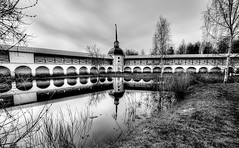Halba rebellion (1774 – 1779)
The Halba rebellion is considered as an importanttribal rebellion in the history of the present day state of Chhattisgarh in India. The event of Halba rebellion took place in the area of the Bastar District in Chhattisgarh. It created everlasting alteration in the Bastar District.
After the decline of the Chalukyas, the situations were such that both the Marathas and the British came one after the other, to the place in order to rule. The Halba rebellion started against them in the year seventeen hundred and seventy four. The then governor of Dongar, Ajmer Singh, was the initiator of the revolt of Halba. The revolution of Halba was started with the desire of forming a new and independent state in Dongar.
The Halba tribe as well as the soldiers stood beside Ajmer Singh. The main reason behind the revolt was lack of money and food in the hands of the common people. A long drought had affected the people especially those who had very little cultivable land in their hands. Added to this severe problem, there was the pressure and fear caused by the Maratha and the British on the commoners, which eventually resulted in the uprising.
The British armies and the Marathas suppressed them and in a massacre, many of the Halba tribal people were killed. Subsequently, the army of Halba was also defeated. However, the situation was such after the defeat of the Halba army that the history of the district of Bastar changed forever.



